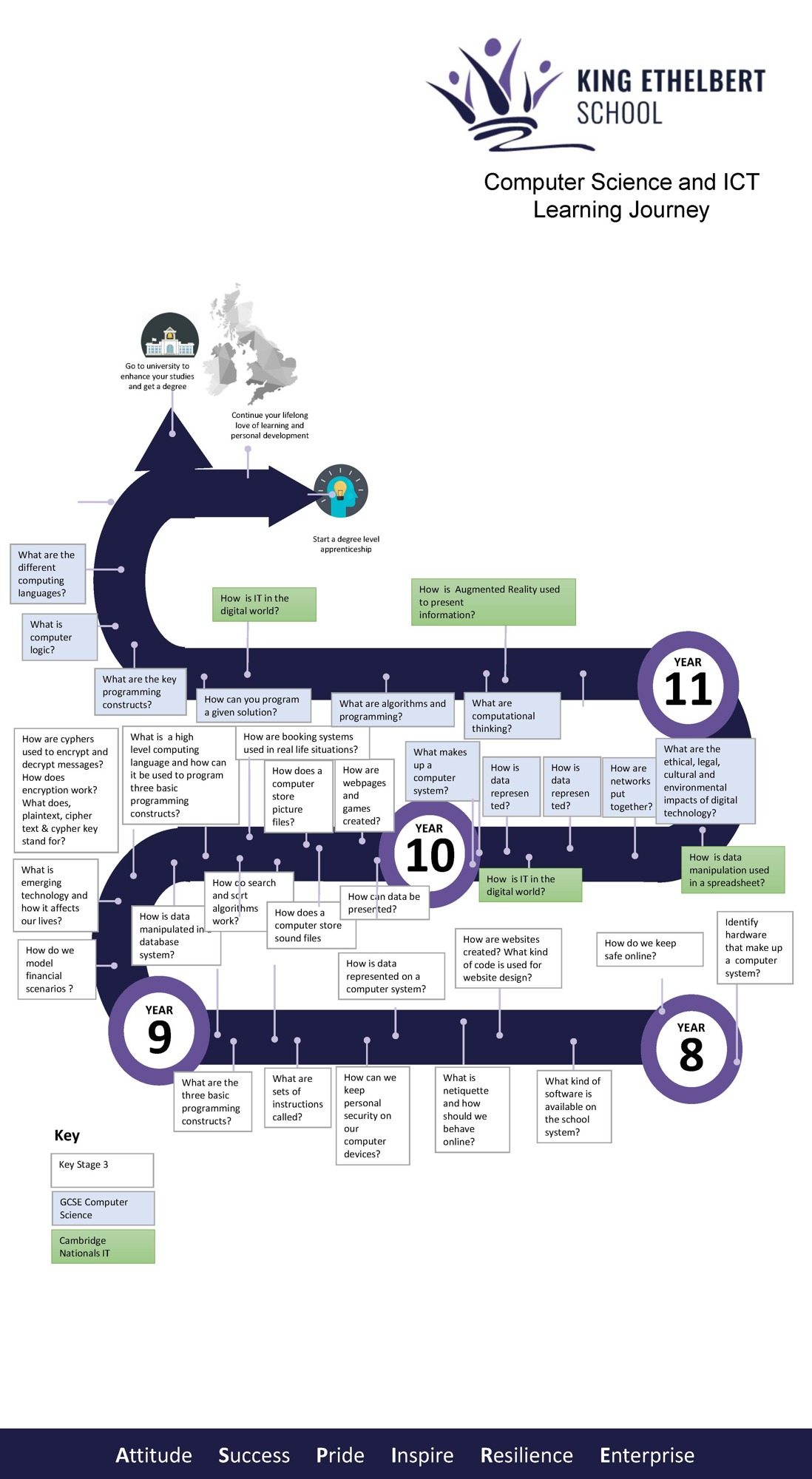- Home
- Curriculum
- Subject Information
- Computer Science & IT
Computer Science & IT
CURRICULUM INTENT STATEMENT
In the Computer Science and IT Department we aim to align the whole school’s curriculum within our curriculum to prepare KES students to become responsible citizens, prepared for the future and lifelong learners.
| Globally Diverse | Ambitious for the Future | Inquisitive Learners |
|---|---|---|
|
KES students…
|
KES students…
|
KES students…
|

Computer Science and ICT Learning Journey
Key Stage 3
Technology advances constantly and people are always working on new and inventive ways to use it. By studying Computer Science, our students will be able to evaluate and apply information technology, including new or unfamiliar technologies, analytically to solve problems. They will also become responsible, competent, confident and creative users of information and communication technology. We aim to foster curiosity and thinking skills in all our learners, preparing them to learn how to look at a problem and working out a way a computer might be able to help you solve it. We aim to prepare our students to become logical thinkers and problem solvers. The range of topics delivered within the Key Stage 3 curriculum ensures students gain some exposure to both areas of the Computer Science and IT curriculum. It is paramount that students understand a range of ways to use technology safely, respectfully, responsibly and securely, including protecting their online identity and privacy; recognising inappropriate content; contact and conduct and knowing how to report concerns. Discussion on Internet safety, cyberbullying and Netiquette are promoted throughout key stage 3.
Key Stage 4
There are two pathways available to students to study at key stage 4; GCSE Computer Science and The Cambridge National in Information Technologies. Both of these are engaging and practical, encouraging creativity and problem solving. It encourages students to develop their understanding and application of the core concepts in computer science. Students also analyse problems in computational terms and devise creative solutions by designing, writing, testing and evaluating programs. Cambridge Nationals in Information Technologies will inspire and equip students with the confidence to use skills that are relevant to the IT sector and more widely. It covers the use of IT in the digital world, Internet of Everything, data manipulation, human-computer interface (HCI) and augmented reality. The GCSE Computer Science & The Cambridge Nationals in Information Technologies courses, in tandem with emphasis on problem solving and independent learning, provide a sound base for further study, allowing our students to focus on careers in either computing, IT data management or in emerging technologies such as augmented reality. Students will understand the uses of Internet of Everything and the application of this in everyday life, cyber-security and legislations related to the use of IT systems, and the different types of digital communications software, devices, and distribution channels. It is paramount that ethical and social impacts of technology are the backbone to the study within the department.
